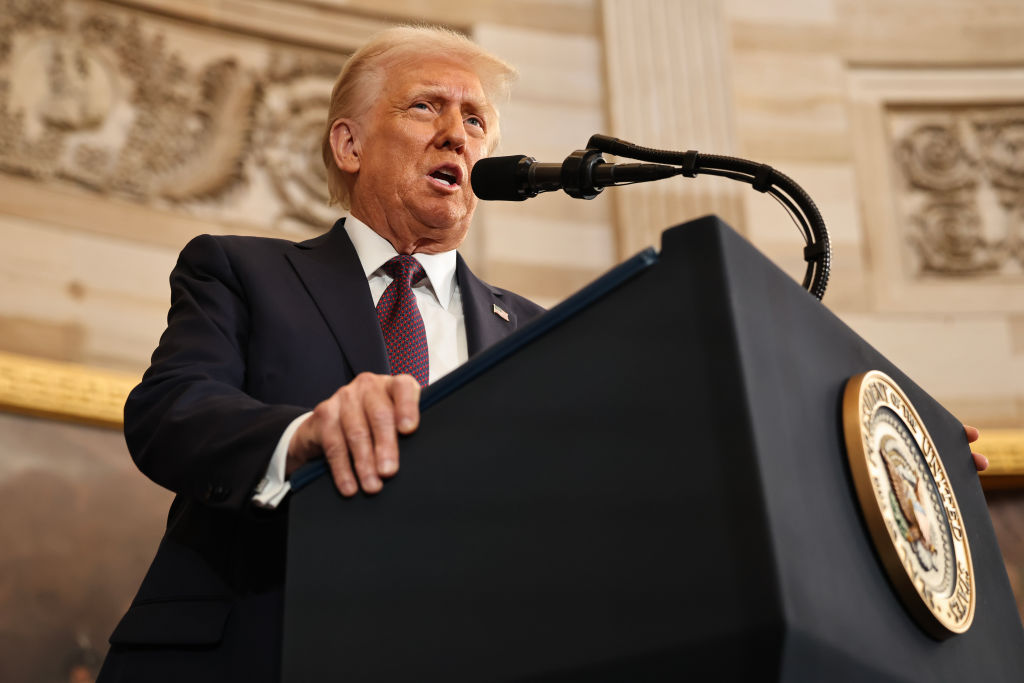Donald Trump was inaugurated this morning, marking a turning point in U.S. politics. The speeches at Trump’s inauguration celebration at Capitol One Arena highlighted a vision for progress, emphasising the Abraham Accords, economic partnerships, and a pivot towards courageous diplomacy rooted in accountability. Trump declared an end to blank cheques, advocating for fiscal responsibility and global self-reliance. His administration’s priorities took shape immediately with a series of executive orders, signalling major shifts in governance. Executive orders are legally binding but not classified as legislation since they do not require Congress's approval. Congress can challenge them by cutting funding or introducing hurdles. Only the sitting U.S. president can overturn an executive order.
Here’s a summary of some major executive orders that made headlines, evaluated by their potential economic impact:
High impact
Trade Policy: An executive order mandating a review of trade policy was signed, with President Trump announcing plans to impose 25% tariffs on imports from Canada and Mexico starting 1 February. This move (if it eventuates) is expected to disrupt trade relationships, increase costs for businesses, and drive up consumer prices, particularly in industries reliant on cross-border supply chains. While specific tariffs on China have not yet been unveiled, this initial step signals significant shifts in trade dynamics. For now, the impact may be felt by U.S. companies with an import reliance on Mexico or Canada, such as Walmart (WMT:US), Target (TGT:US), and Tyson Foods (TSN:US). Additionally, companies like Canadian National Railway (CNR:CA), which facilitates cross-border transportation of goods, could also be affected.
Energy Emergency Declaration: Expanding fossil fuel production and removing electric vehicle mandates will significantly reshape energy markets, affect energy prices, and impact job creation in energy-dependent sectors. Trump rescinded Biden’s non-binding executive order aimed at ensuring 50% of new vehicles sold by 2030 would be electric. At his inauguration, Trump stated: “America has the largest amount of oil and gas of any country on Earth, and we are going to use it. We will drill, baby, drill.” Oil companies such as ExxonMobil (XOM:US) and Chevron (CVX:US) stand to benefit, while automakers like General Motors (GM:US) and Tesla (TSLA:US) could face headwinds. Trump's policy direction could also impact renewable energy companies, with firms like NextEra Energy (NEE:US) and First Solar (FSLR:US) potentially seeing reduced government incentives.
Government Efficiency Mandate: The newly established Department of Government Efficiency, led by Elon Musk, has been tasked with recommending program and budget cuts. This initiative could negatively affect regions that rely heavily on federal funding, potentially leading to significant economic challenges for those communities. "Deers in the headlights of DOGE" will be defence and healthcare companies such as UnitedHealth Group (UNH:US), Lockheed Martin (LMT:US), and Boeing (BA:US), which could face uncertainty if federal funding comes under scrutiny.
Moderate impact
Withdrawal from the Paris Climate Agreement: Exiting this international accord could discourage investment in clean energy and green technologies, potentially affecting long-term economic and environmental strategies.
Reclassification of Federal Employees: Reclassifying certain federal roles as political appointees, making them easier to dismiss, may impact job security and operational continuity.
Federal Hiring Freeze: Restricting government hiring, except for military and critical roles, may decrease economic activity in regions dependent on federal employment.
Consumer Inflation Memorandum: While largely symbolic, federal actions targeting inflation could influence economic stability and purchasing power if effectively executed.
Revised Immigration Enforcement: Reinstating policies prioritising the deportation of undocumented individuals may disrupt industries reliant on undocumented labour while reducing strain on public resources.
End of Birthright Citizenship: Though facing constitutional challenges, this policy may impact workforce demographics and long-term economic dynamics.
Return to 'Remain in Mexico' Policy: Reinstating this policy could indirectly impact industries by limiting the availability of asylum seekers who might otherwise contribute to the labour force.
Rescinding Biden Administration Executive Actions: The decision to rescind 78 executive actions signals a pivot from diversity-focused reforms within the federal government.
Termination of Federal Diversity Programs: Eliminating DEI (diversity, equity, and inclusion) initiatives may have limited direct economic effects but could influence workplace culture and inclusivity in federal agencies and contractors.

